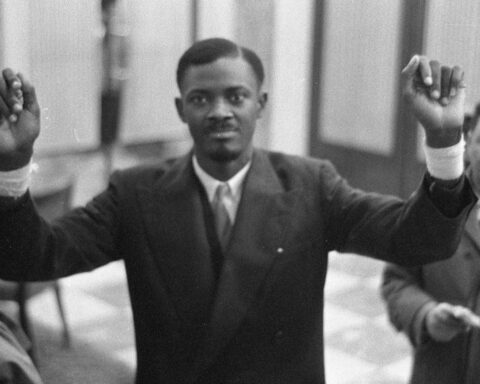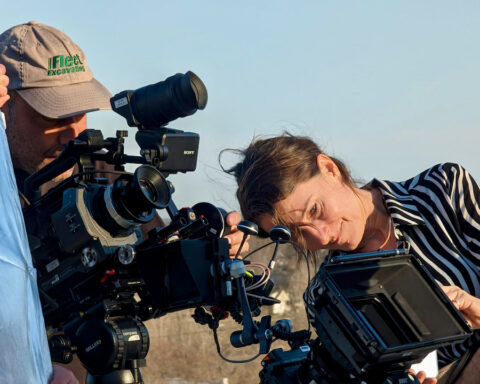Last and First Men
(Iceland, 71 min.)
Dir. Jóhann Jóhannsson
A highlight in the great world of parody Twitter accounts is the now tragically defunct handle @NotTildaSwinton. This take on the eccentric Oscar-winning actress perfectly embodies the thespian’s signature brand of cool strangeness. @NotTildaSwinton’s tweets are poetic ramblings about wigs made of yak wool or affectionate nods to “mother,” who takes the form of a comet or a cicada depending on the tweet. There’s just something weirdly and appropriately prophetic about the way she tweets about the world.
@NotTildaSwinton might be the first Twitter parody account to receive a documentary portrait, if one chooses to view Last and First Men as such. The film, a posthumous release and directorial debut for Icelandic composer Jóhann Jóhannsson (Arrival, Sicario), features rambling contemplative narration by Tilda Swinton (the real one) worthy of her parody account. The film adapts Olaf Stapledon’s book Last and First Men: A Story of the Near and Far Future and might best be considered the cinematic equivalent to an audio book, though, like listening to Swinton wax poetic while one traverses a melancholy countryside replete with dystopian images.
Few of Swinton’s lines are especially memorable, but they create a lasting impression of unease when coupled with the film’s striking imagery and moody score. For a sci-fi tale set on Neptune over two billion years in the future, that angle might be the only way to consider it a doc, a label under which it liberally appears at some festivals. Fans of experimental, non-narrative cinema will find lots to consider in this atmosphere journey to the wonder. Her voice, reassuring as ever, coaxes a viewer to fear not death but be thoughtful of the afterlife, as well as the practices that might force our species to shift from one world to the next.
Jóhannsson’s death at the age of 48 hangs atop this last and first feature by the artist. The film is an essay on mortality and a contemplation of humankind’s longevity on Earth. Eerily sonorous chords reverberate on the soundtrack as Jóhannsson’s signature compositions lend a bittersweet authorial stamp. The film shows enormous potential with the artist’s hand at visual essays. Yet with that being said, Jóhannsson’s early death due to a presumed accidental overdose adds an additional dimension as the narrator considers the inevitable tragedy that awaits destructive behaviour.
Last and First Men tours memorial sites in the former Republic of Yugoslavia and the monuments observed evoke both the future and the past. Shot in stark black and white 16mm cinematography by Sturla Brandth Grøvlen, Jóhannsson’s film has an elegiac character as it speculates upon the human race of the future. Slow zooms with the crawling camera evoke a sense of impending doom. Swinton, meanwhile, casts a dire omen for humanity by noting that the race has only a few million years left. Anyone watching the film in 2020 will be dead long before that happens, but there is an uncanny and evocative sensation that arises through her utterance. The film foreshadows the extinction of the human race. This futuristic vision yields a portrait of how the world will look if we continue down the current trajectory of consumption. Humans will all be dead, but the man-made junk that litters the Earth will outlive everyone.
Last and First Men screens at Montreal Festival du Nouveau Cinema through Oct. 31.











